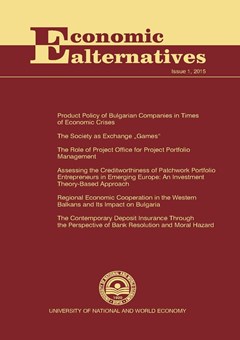Society as Exchange ‘Games’
Author: Vyara Stoilova
Abstract
Sociology explains the social through the prism of two processes evolving in parallel where the answers to two interrelated questions lie – how is the social made possible and how is it possible for the individual to exist within the social framework. Both society and the individual occur simultaneously and this is the process of interaction between people. This article provides an explanation of the social in compliance with Simmel’s sociological tradition, where it is claimed that the exchange – as an indisputable sociological fact – builds and reproduces the social environment and the individual. Organising exchange through rules which aim to build interrelation between the individuals is used to structure the paths along which the individual can satisfy their needs. The specific nature of the exchanged goods presupposes the organisation of individual, but not isolated, interrelated exchange ‘games’. Through their rules the exchange ‘games’ structure the paths for satisfying needs, transforming the latter into specific interests of the participants. In this way, the social (society) is built and reproduced on the basis of its components – self-insufficient individuals organised in some form of compatibility, based on the social division of labour – exchange ‘games’ in which the satisfaction of needs is carried out as the realisation of specific interests – subsequent reproduction of needs and their satisfaction.

